Winding through its elegant streets, Milan reveals itself little by little, as if the city prefers to be approached slowly. Around the Duomo, the bustle never stops, yet just a few steps away you can find a quiet little square, an old café where the smell of coffee seems to have lingered for decades.
Follow the cobblestones toward the Galleria Vittorio Emanuele II and your eyes naturally drift from the mosaics to the glass dome overhead. The shop windows shine, but it’s often the voices echoing through the arcades that capture your attention. Before long, you find yourself slowing down almost without noticing.
In the Brera district, the mood shifts. The buildings close in, and the narrow streets invite you to wander without caring where they lead. Between two art galleries, a terrace overflows with voices and the clink of glasses. This is where Milan stays with you—in moments that feel as if they belong to no one but the present.
Top 5 Guided Tours
Places to Visit
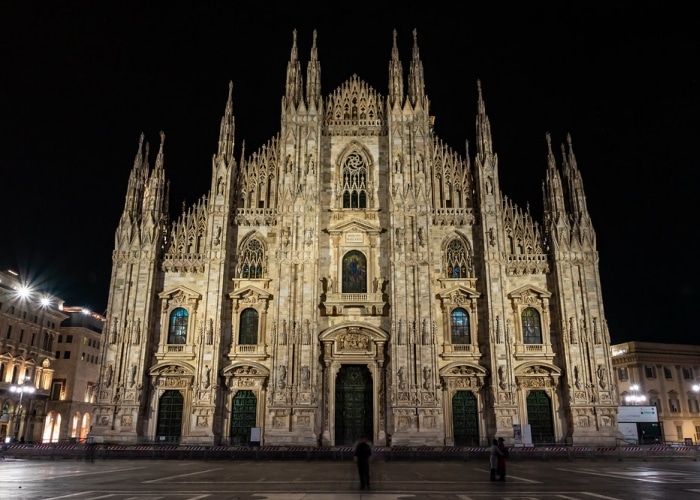
In the historic center, the Duomo di Milano rises like a stone forest of slender spires. Its white façade, countless statues, and shifting shadows throughout the day give the cathedral a presence that’s impossible to ignore. Climbing to the rooftops means walking among arches and pinnacles, with the city spread out below.
Just steps away, the Galleria Vittorio Emanuele II opens with its glass ceilings and intricate mosaics. You almost pass through it naturally after leaving the cathedral, as though it were an extension leading to the buzz of cafés and elegant shop windows. Further on, the Castello Sforzesco stands as a reminder of Milan’s former power, its red walls contrasting with the quiet gardens that surround it.
Inside, the Duomo di Milano surprises with its dim light and stained-glass windows filtering the sun. The massive columns disappear into the height above, making you feel small, caught between stone and silence. Visitors move slowly here, as if the atmosphere itself were holding them back.
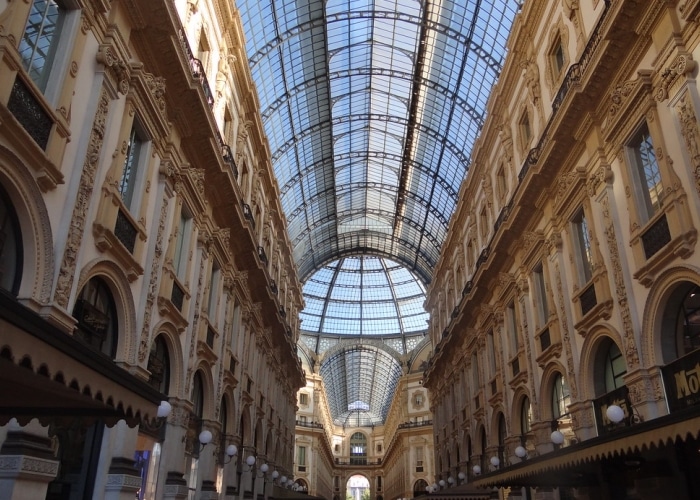
Among Milan’s most iconic arcades, the Galleria Vittorio Emanuele II draws visitors as much for its architecture as for its atmosphere. Opened in 1877, it was named after Italy’s first king and has ever since served as a meeting point for locals and travelers alike. You enter almost instinctively, drawn by the filtered light beneath its glass roof.
The windows display prestigious brands—clothing, jewelry, accessories—but the gallery is far more than a shopping destination. The cafés tucked under the arches invite you to sit, watch the world pass by, and listen to footsteps echo rhythmically on the marble floor.
What truly impresses are the details: the soaring glass-and-iron dome, the polished mosaics covering the floor, the subtle statues recalling figures from Italian history. Each step makes you look up, caught between the sweep of metal curves and the muted colors of stone.
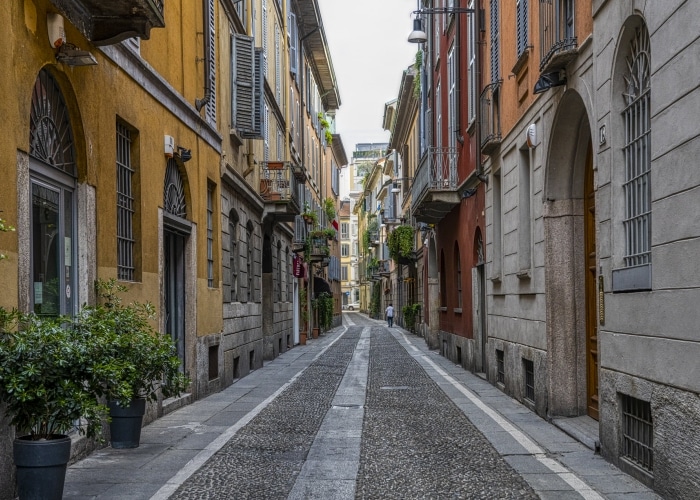
In the heart of Milan, the Brera district keeps a character all its own, with cobblestone streets and colorful facades. You walk slowly here, drawn to the artists’ studios, galleries, and café terraces that open up at every corner. The pace feels calmer than the rest of the city, almost suspended in time.
At the center of the neighborhood stands the Pinacoteca di Brera, renowned for its collection of Italian paintings. Just steps away, the Academy of Fine Arts continues to fuel the area’s creative energy, shaped by the presence of students and artists. The blend of tradition and modernity can be felt with every step.
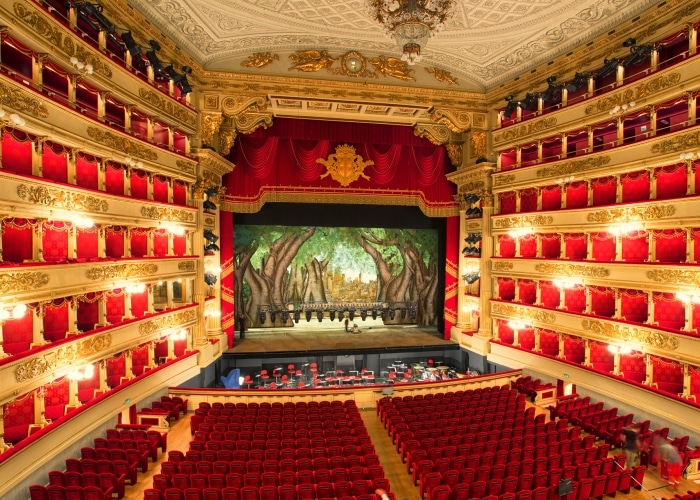
Among Milan’s most enduring symbols, La Scala holds a special place. Behind its understated façade lies one of the world’s most famous opera houses. The deep red curtains, the brilliance of the central chandelier, and the steeply tiered seating create a solemn atmosphere from the moment you step inside.
Founded in 1778, it has hosted the greatest Italian composers, from Verdi to Puccini. Performances still draw audiences from around the globe, eager to experience that singular intensity. Next door, the La Scala Museum displays scores, instruments, and portraits that tell the musical story of the city.
The area around the theater flows naturally into the Galleria Vittorio Emanuele II, where visitors continue their stroll after a show or a tour. A little further on, Piazza del Duomo reminds you of the deep connection between art, architecture, and daily life in Milan.
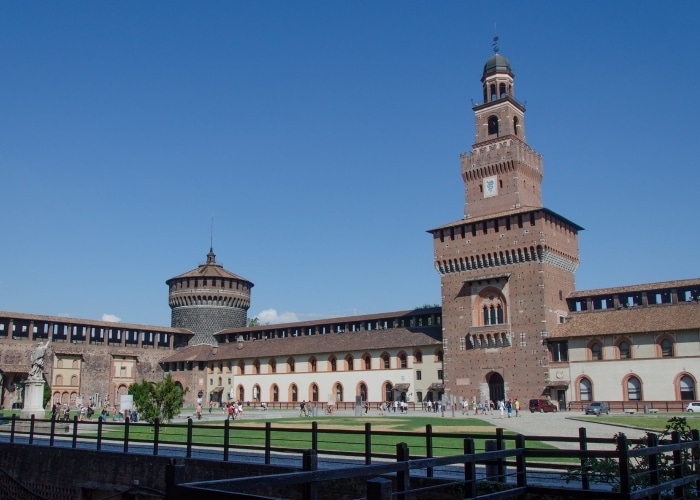
At the northern entrance to the historic center, Sforza Castle rises with its brick towers and massive walls. Built in the 15th century by the powerful Sforza family, it still looks like a fortress, though today it houses museums and art collections. The wide inner courtyard invites you to pause and look up at the ramparts.
Inside, the rooms display works from the Renaissance through more recent centuries. You’ll find frescoes attributed to Leonardo da Vinci, sculptures by Michelangelo, and antique instruments. Each wing of the castle tells a different chapter of Milan’s history.
Behind the castle, the paths of Parco Sempione unfold like a natural extension, a vast green space where locals and visitors come to relax. Following the trails, you eventually spot the Arco della Pace, perfectly aligned with the castle, a reminder of yet another era in the city’s story.